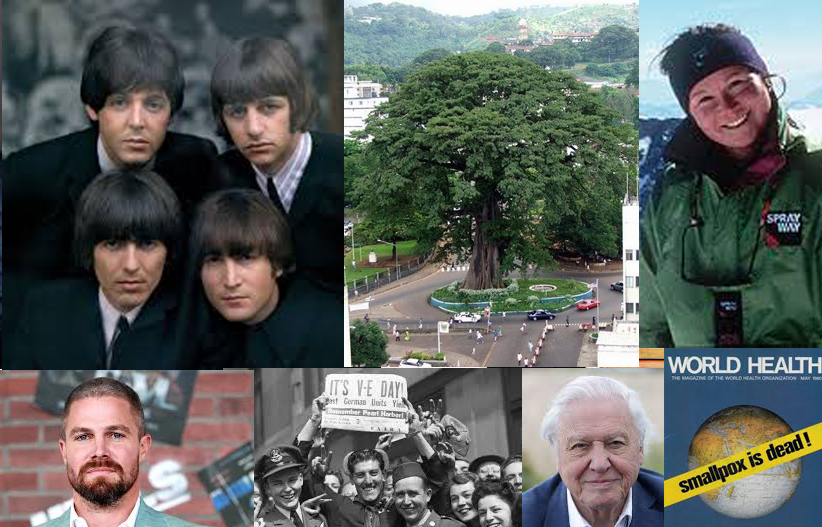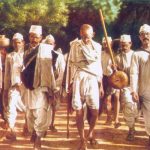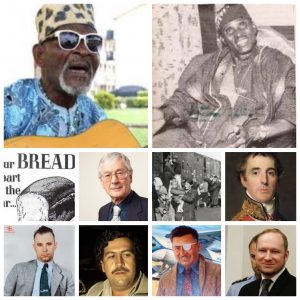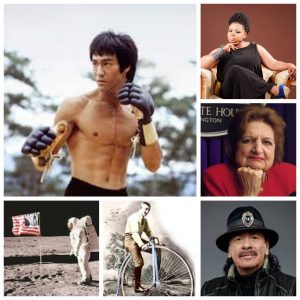
1559: An act of supremacy defines Queen Elizabeth I as the supreme governor of the church of England.

1787: The Freetown Cotton Tree is now a mature adult as a group of African-American settlers arrive to form a settlement in West Africa. They hold a prayer of thanksgiving beneath its branches. Because a cottonwood may live up to 400 years, the giant tree will still thrive in downtown Freetown, Sierra Leone in 2024

1886: Coca-Cola is invented
According to legend, Dr. John Styth Pemberton, an Atlanta pharmacist, produced the syrup in a brass pot in his backyard. It was first intended as a patent medicine a cure-all tonic. Today, Coca-Cola is one of the world’s most popular soft drinks and one of the most recognized trademarks.

1879: George Selden filed for the first patent for a gasoline-driven automobile.

1945: V-E Day is celebrated in America and Britain. On May 8, 1945, both Great Britain and the United States celebrated Victory in Europe Day. Cities in both nations, as well as formerly occupied cities in Western Europe, put out flags and banners, rejoicing in the defeat of the Nazi war machine during World War II.

1970: A month after Paul McCartney announced that he had left the Beatles, the British rock group released Let It Be, their last original studio album to hit the record shops.

1980: Following a global vaccination program, the WHO officially declared that smallpox was eradicated; for centuries, the acute infectious disease was one of the world’s most-dreaded plagues.

1984: The Soviets announce a boycott of the 1984 Olympics. Claiming that its athletes will not be safe from protests and possible physical attacks, the Soviet Union announces that it will not compete in the 1984 Olympics in Los Angeles. Despite the Soviet statement, it was obvious that the boycott was a response to the decision of the United States to boycott the 1980 games that were held in Moscow.
1996: South Africa took another step from apartheid to democracy by adopting a constitution that guaranteed equal rights for Blacks and whites.
1986: British climber Alison Hargreaves became the first climber to conquer a Himalayan peak by its toughest route when she reached the 22,251 foot (6,782 m) summit of Kantega in 5 days without oxygen, porters or a fixed camp.

2019: Singapore passed anti-fake news laws.
The new laws have been called controversial, as they give the Singaporean government too great of an ability to police online chat rooms and pages. The regulations ban the use of fake accounts and bots and the spread of false statements, and the penalty for breaking them can be as high as a US$733,000 fine and a ten-year jail term.
BIRTHS ON THIS DAY: May 8
David Attenborough, 97 years
Sir David Frederick Attenborough is a British broadcaster biologist, natural historian, and writer born on 8 May 1926. He is best known for writing and presenting, in conjunction with the BBC Natural History Unit, the nine natural history documentary series forming the Life Collection, a comprehensive survey of animal and plant life on Earth.

Stephen Amell, 42 years
Stephen Adam Amell, a Canadian actor was born on 8 May 1981. He came to prominence for playing the lead role of Oliver Queen on the CW superhero series Arrow, based on DC Comics. Amell also appeared in subsequent Arrowverse franchise media, along with reprising his role in various video games.

Alabo Tonye Graham-Douglas (8 May 1939 – 25 April 2022)
Chief Alabo Tonye Graham-Douglas was a Nigerian politician who was appointed Minister of Youth, Sports, and Culture in 1989, and then Minister of Aviation in General Ibrahim Babangida’s cabinet.
Kindly like, comment, follow, and share.





















